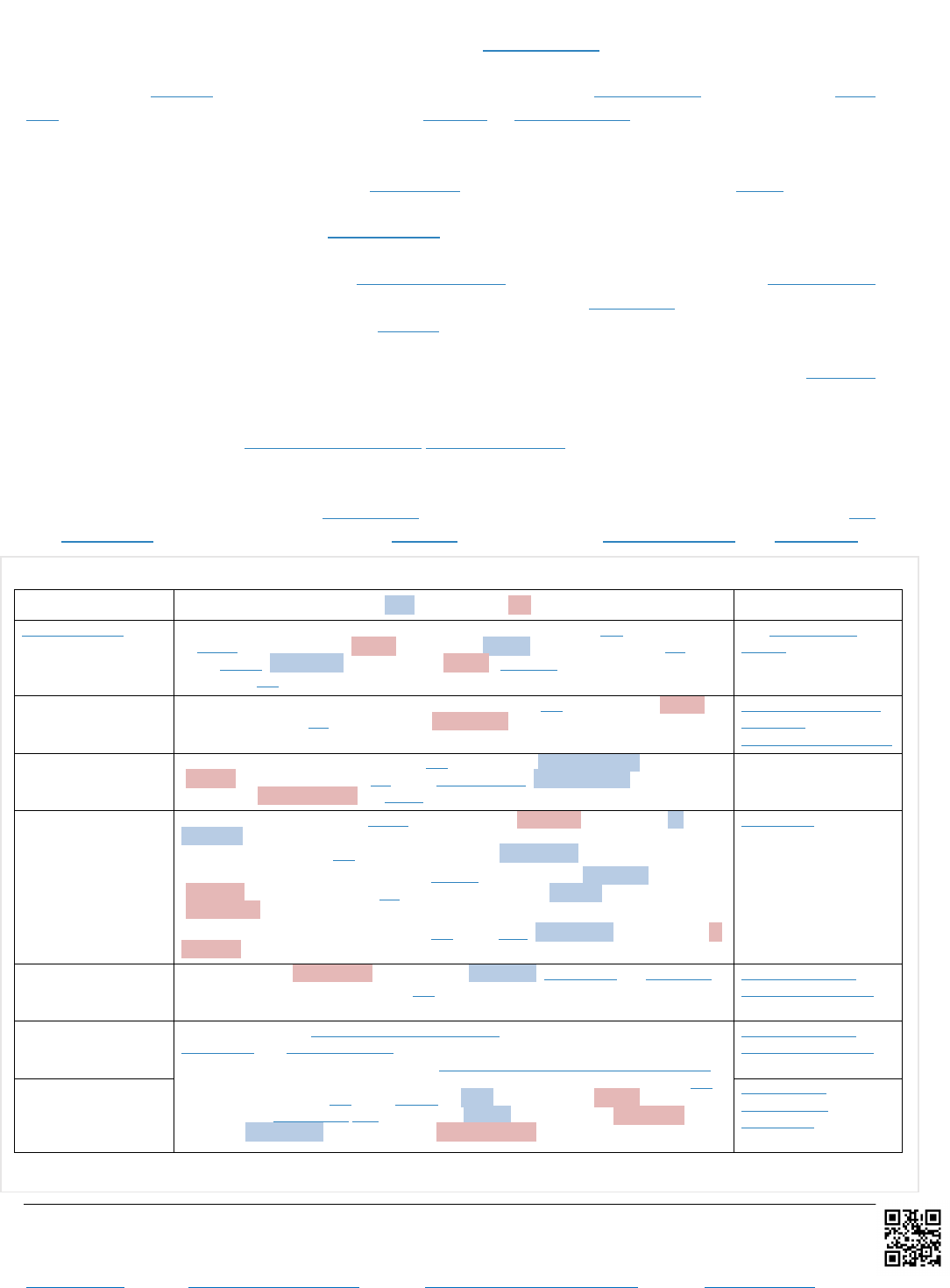
AT A GLANCE
EPRS | European Parliamentary Research Service
Author: Gisela Grieger, Members' Research Service
PE 729.290 – March 2022
US Congress and trade policy tackling China
In the first year of the 117th US Congress (2021-2022), members of both the House and the Senate saw an urgent
need both for a trade policy offensive specifically for the Indo-Pacific region to maintain US leadership in setting
international standards and norms, and for an upgrade of defensive trade policy tools to address China's unfair
trade practices. Congressional initiatives have coincided with debates in the European Parliament on the EU's
Indo-Pacific strategy and on legislative proposals set to expand the EU's toolbox of autonomous trade measures.
Background
US Congress exercises trade policy authority by authorising preferential trade programmes (e.g. the
Generalized System of Preferences (GSP)) and by enacting laws on trade remedies to unfair trade practices.
Members' letters to the executive and public statements, including in hearings, shape trade policy and add
to Congressional oversight. In the past, Congress has granted the President Trade Promotion Authority
(TPA), under the 1974 Trade Act, to negotiate trade agreements that, once submitted to Congress, would
be 'fast-tracked', meaning they could neither be amended nor filibustered. TPA compels the executive to
comply with strict timelines and keep Congress updated on negotiations. The last such authority expired in
July 2021, and the Biden administration has not sought renewal, as its policy focuses on upgrading the US's
innovative and competitive edge under a
'worker-centred' Build Back Better framework, rather than
engaging in talks on new free trade agreements (often associated with job losses in the USA).
Congress position on US trade strategy
Congress continues to see US trade strategy through the lens of US-China strategic competition. Members
on both sides of the aisle have admitted publicly that the 2017 US withdrawal from the then Transpacific
Partnership (TPP) trade agreement was a strategic mistake that left a vacuum, now being filled by others,
possibly even by China. They have called on the Biden administration to reassert US trade leadership and
re-engage US allies in the Indo-Pacific on trade. Congressional backing does not appear to be strong for the
US to join the TPP successor deal, perceived as lacking strict labour and environmental rules similar to those
in the model US-Mexico-Canada Agreement (USMCA), in force since 2020. There is more support for the
launch of negotiations on digital trade with US allies and partners in Asia and for a focus on digital trade,
technology and decarbonisation under the new Indo-Pacific Economic Framework, announced by
President Biden at the 2021 East Asia Summit.
The proposed Trade Act of 2021, as part of the
bipartisan omnibus US Innovation and
Competition Act (
USICA) of 2021, advocates
digital trade deals with like-minded partners,
and contains provisions on trade in essential
supplies and on preventing imports, including
seafood, produced using forced labour;
reinforced Buy American clauses; and a
reformed GSP. USICA also includes
funding for
the already enacted 2020 CHIPS for America
Act. USICA was adopted by the Senate in 2021,
but (as of March 2022) is not yet reconciled with the House companion bill: the America Creating
Opportunities for Manufacturing, Pre-Eminence in Technology and Economic Strength Act, or America
COMPETES Act of 2022. Passed in February 2022, the act
focuses on trade policy tools, including a novel
outward investment screening mechanism and a reform of the GSP and of trade remedies (see Table 2). In
addition, House Republicans introduced the US Trade Leadership in the Indo-Pacific and China
Act of 2021,
calling for a robust trade vision for the Indo-Pacific and a follow-up plan on the US-China Phase One deal.
Table 1 – Recent US Congress strategic trade bills
Senate Trade Act of 2021 included in the US Innovation and
Competition Act (USICA
) of 2021; bipartisan, passed.
House America COMPETES Act of 2022; Democrat-led, passed.
House U.S. Trade Leadership in the Indo-Pacific and China Act of
2021, Republican-led.
Source: EPRS; situation as of February 2022.

EPRS
US Congress and trade policy tackling China
This document is prepared for, and addressed to, the Members and staff of the European Parliament as background material to assist them in their
parliamentary work. The content of the document is the sole responsibility of its author(s) and any opinions expressed herein should not be taken
to represent an official position of the Parliament. Reproduction and translation for non-commercial purposes are authorised, provided the source
is acknowledged and the European Parliament is given prior notice and sent a copy. © European Union, 2022.
[email protected] (contact) http://www.eprs.ep.parl.union.eu (intranet) http://www.europarl.europa.eu/thinktank (internet) http://epthinktank.eu (blog)
Selected trade bills introduced in Congress in 2021 to sharpen US trade policy tools
Strengthening US trade remedy law to address China's circumvention of tariff barriers and subsidisation
of business activities in third countries was raised as an important bipartisan objective at a House Trade
Subcommittee
hearing late in 2021. If Congress passes the proposed amendments to the 1930 US Tariff
Law (see Table 2), the US will follow the EU in its practice of countervailing subsidies provided by foreign
governments to exporting producers located in third countries. Moreover, Republican lawmakers
introduced a bill aimed at bringing green field investments from China under the scope of inbound foreign
direct investment (FDI) screening by the
Committee on Foreign Investment in the US (CFIUS). Currently,
green field investments are not screened in the US, since they concern the creation, rather than acquisition
of existing, businesses, although they
may implicate the CFIUS rules for real estate transactions. In addition,
House and Senate lawmakers introduced bipartisan bills advocating a novel outbound investment review
mechanism ('CFIUS in reverse'). Despite a
targeted approach, these proposals have remained controversial,
but are now included in HACA. As China's economic coercion is expanding in scope and scale, US
lawmakers debated policy responses at a hearing in 2021, and introduced bills aimed at inter-agency
capacity-building for monitoring and providing support to affected third countries. Since China has so far
not coerced the USA, the US approach is distinct from the EU's, where China employed economic
coercion
against Lithuania. There is no US legislation (yet) mirroring the EU proposal for a regulation to address
market distortions linked to foreign acquisitions of EU firms subsidised by third countries. However, a
2021 House bill, based on a
US-China Commission recommendation, would require pre-merger notification
of subsidies under US anti-trust law. Unlike the EU, the US does not currently appear to seek to open access
to closed foreign public procurement markets like China for US firms through legislation matching the EU
proposal. Unlike the EU, the US has a
long history of protecting its market, with the 1933 Buy American Act
and similar laws, which are regularly updated through a combination of executive orders and legislation.
Table 2 – US Congress/EU autonomous trade measures
Trade measure US Congress (blue = Democrats, red = Republicans) EU
Trade remedies (anti-
dumping and
counter-vailing duties
and safeguards)
Eliminating Global Market Distortions To Protect American Jobs Act (not included
in USICA), Sens. Portman (R-Ohio) and Brown (D-Ohio), House companion bill,
Reps. Sewell (D-Alabama) and Johnson (R-Ohio); included in the House America
COMPETES Act (HACA)
The two-pronged
reform of the EU trade
defence instruments
(TDIs) is completed.
Inbound investment
review mechanism
Exposing China's Belt and Road investment in America Act, Rep. Stewart (R-Utah),
Senate companion bill, Sen. Kennedy (R-Louisiana); neither in USICA nor in HACA
EU framework for FDI
screening, 2021
implementation report
Outbound
investment review
mechanism
National Critical Capabilities Defense Act, Sens. Casey (D-Pennsylvania) and Cornyn
(R-Texas), House companion bill, Reps. Rosa DeLauro (D-Connecticut) and
Fitzpatrick (R-Pennsylvania); in HACA, not in USICA
No matching EU
legislative proposal
published or planned
Policy to push back
against economic
coercion
Economic defense response teams, Sens. Portman (R-Oregon) and Cardin (D-
Maryland); included in the House Ensuring American Global Leadership and
Engagement or EAGLE Act, Rep. Gregory Meeks (D-New York); in USICA and HACA;
China Censorship Monitor and Action Groups, Sens. Merkley (D-Oregon) and Rubio
(R-Florida), House companion bill, Reps. Joaquin Castro (D-Texas) and Peter Meijer
(R-Michigan); in USICA and HACA
Countering China Economic Coercion Act, Reps. Bera (D-California) and Wagner (R-
Missouri); in HACA, not in USICA
Instrument to deter
and counteract
coercive actions by
third countries (under
debate)
Foreign subsides for
acquisitions of EU/US
companies
Reps. Fitzgerald (R-Wisconsin) and Stanton (D-Stanton) introduced the bipartisan
Foreign Merger Subsidy Disclosure Act of 2021; neither in USICA nor in HACA
Distortive foreign
subsidies regulation
(under debate)
Foreign subsidies for
public tenders in the
EU/USA
Buy American rules limit access to the US market based on domestic content
restrictions and price preference. Waivers are granted to third countries based on
US commitments (e.g. WTO plurilateral Agreement on Government Procurement)
under international law. Bills recently introduced: Build America, Buy America Act
and BuyAmerican.gov Act, Sens. Brown (D-Ohio) and Portman (R-Ohio), both in
USICA; House companion bills: Reps. Ryan (D-Ohio) and Aderholt (R-Alabama); and
Delgado (D-New York) and Fitzpatrick (R-Pennsylvania), not in HACA
Distortive foreign
subsidies regulation
(under debate)
Approach to third
countries with closed
public procurement
markets
International
procurement
instrument (IPI) (under
debate)
Source: EPRS; situation as of February 2022.
